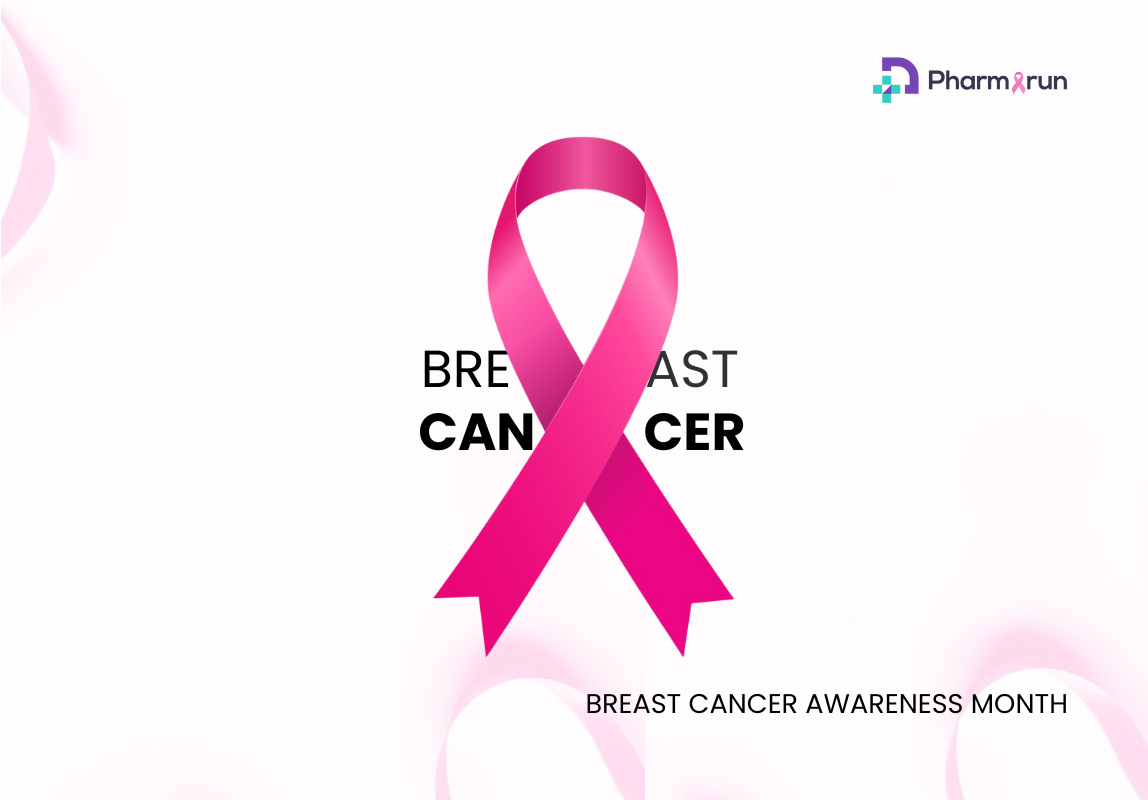Bipolar Disorder: Symptoms, Treatments, and Types | Pharmarun | Online Pharmacy in Nigeria.

Introduction
Bipolar disorder is a serious mental illness that can cause a lot of stress and difficulty. It affects millions of people worldwide, and can be very difficult to manage.
Learning about bipolar disorder is important not only for those who have the condition, but for their loved ones as well. By knowing the symptoms and treatments available, individuals can take control of their condition and enjoy a better quality of life.
What is Bipolar disorder?
Bipolar disorder is a mental health condition that causes severe mood swings, which can be very disruptive and interfere with a person's daily life.
Bipolar disorder affects around 46 million people around the globe, and it affects men and women equally. It usually develops during late adolescence or early adulthood, but it can occur at any age.
Types of Bipolar Disorder
There are four main types of bipolar disorder, each with its own unique set of symptoms.
- Bipolar I is characterized by episodes of mania and depression, while bipolar II is characterized by episodes of hypomania and depression. Cyclothymia is a milder form of bipolar disorder, where a person experiences both hypomanic and depressive symptoms, but they are not severe enough to meet the criteria for a full episode. Bipolar disorder NOS is used when a person has symptoms of bipolar disorder, but they do not fit into any of the other categories.
- Mania and hypomania are expressions of elevated mood, while depression is a state of sadness or low mood. People who experience these conditions can experience racing thoughts, rapid speech, and impulsive behavior. However, these symptoms are not always severe, and people with mania or hypomania typically do not experience significant impairment.
- Depression: A person may feel sad, hopeless, and have a loss of interest in activities they used to enjoy. They may also experience physical symptoms such as fatigue, changes in appetite, and trouble sleeping.
Bipolar Disorder Symptoms
Bipolar disorder is a mental health condition that can significantly impact an individual's life. It’s symptoms are extreme shifts in mood, energy, and activity levels. These shifts can manifest as depressive and manic episodes.
- Depressive episodes are periods of extreme sadness, hopelessness, and emptiness that can last for weeks or months. During these episodes, individuals may have difficulty sleeping, lose interest in activities they once enjoyed, experience changes in appetite, and have difficulty concentrating. Depressive episodes can be debilitating and affect a person's ability to carry out day-to-day tasks.
- Manic episodes are periods of extreme high energy, euphoria, and irritability that can last for days or even weeks. During manic episodes, individuals may experience racing thoughts, decreased need for sleep, increased activity levels, and engage in risky behaviors. Manic episodes can be just as debilitating as depressive episodes, and can lead to impulsive decision-making and risky behaviors.
- Hypomania is a less severe form of mania that can still significantly impact an individual's daily life. Unlike mania, hypomania does not necessarily impair a person's ability to carry out day-to-day tasks. However, it can still lead to impulsive behavior and risky decision-making.
These symptoms can affect a person's daily life in many ways. For example, individuals with bipolar disorder may struggle to maintain relationships and hold down a job due to their mood shifts. They may also have difficulty managing their finances, as manic episodes can lead to overspending and impulsive purchases.

Bipolar Disorder Treatments
Bipolar disorder is a complex mental health condition that requires a multifaceted approach to treatment. While there is no cure for bipolar disorder, there are many effective treatments available that can help people manage their symptoms and lead fulfilling lives. Here are some of the most commonly used treatments for bipolar disorder.
Medications for Bipolar Disorder
Medication is often the first line of treatment for bipolar disorder. The most commonly used medications for bipolar disorder are mood stabilizers, which help to even out mood swings and prevent episodes of mania or depression. Some commonly used mood stabilizers include lithium, valproic acid, and lamotrigine.
- Antipsychotic medications are also used to treat bipolar disorder, particularly during manic episodes. These medications can help to reduce symptoms like delusions, hallucinations, and disordered thinking. Some commonly used antipsychotic medications include olanzapine, quetiapine, and risperidone.
- Psychotherapy for Bipolar Disorder
Psychotherapy, or talk therapy, can be an important part of bipolar disorder treatment. Therapy can help people with bipolar disorder develop coping strategies, improve communication skills, and manage stress. Cognitive-behavioral therapy (CBT) is one type of therapy that has been shown to be effective for bipolar disorder. CBT focuses on identifying negative thought patterns and developing more positive ways of thinking.
- Combination of Medication and Psychotherapy
For many people with bipolar disorder, a combination of medication and psychotherapy is the most effective treatment. This approach can help to address both the biological and psychological aspects of the condition. A mental health professional can work with an individual to develop a treatment plan that is tailored to their specific needs.
Other Treatments for Bipolar Disorder
In addition to medication and psychotherapy, there are other treatments available for bipolar disorder. Electroconvulsive therapy (ECT) is a procedure in which an electric current is passed through the brain to induce a seizure. ECT is typically used for severe cases of bipolar disorder that do not respond to other treatments.
- Transcranial magnetic stimulation (TMS) is a non-invasive procedure that uses magnetic fields to stimulate nerve cells in the brain. TMS has been shown to be effective for treating depression in people with bipolar disorder.
There are many effective treatments available for bipolar disorder. Treatment often involves a combination of medication, psychotherapy, and other therapies, and the right approach will vary depending on the individual. With the right treatment and support, people with bipolar disorder can manage their symptoms and lead fulfilling lives.
Living with Bipolar Disorder
Living with bipolar disorder can be challenging, but there are many strategies that individuals with bipolar disorder can use to manage their symptoms and lead fulfilling lives. Here are some tips for managing bipolar disorder symptoms, coping strategies for individuals with bipolar disorder, and ways to support someone with bipolar disorder.
How to Manage Bipolar Disorder Symptoms
- Stick to a regular routine: Sticking to a consistent schedule can help to stabilize mood and improve overall well-being.
- Get enough sleep: Adequate sleep is crucial for managing bipolar disorder symptoms. Aim for 7-9 hours of sleep per night and try to establish a regular sleep schedule.
- Monitor mood: Keeping track of mood changes can help individuals with bipolar disorder identify triggers and prevent mood episodes before they escalate.
- Avoid drugs and alcohol: Substance use can exacerbate bipolar disorder symptoms, so it's important to avoid drugs and alcohol.
Coping Strategies for Individuals with Bipolar Disorder
- Practice stress management: Stress can trigger mood episodes, so it's important to develop healthy stress management techniques, such as exercise, meditation, or deep breathing.
- Build a support system: Having a supportive network of friends and family can help individuals with bipolar disorder manage their symptoms.
- Seek professional help: Working with a mental health professional can help individuals with bipolar disorder develop coping strategies and learn new skills for managing their symptoms.
- Be kind to yourself: Living with bipolar disorder can be challenging, but it's important to remember that you are not alone. Be kind to yourself and celebrate your successes, no matter how small they may be.
How to Support Someone with Bipolar Disorder
- Educate yourself: Learn as much as you can about bipolar disorder to better understand your loved one's experiences.
- Listen without judgment: When your loved one is struggling, be a good listener and offer support without judgment.
- Encourage treatment: Encourage your loved one to seek professional help and support them in their treatment journey.
- Take care of yourself: Supporting someone with bipolar disorder can be emotionally taxing, so it's important to prioritize your own well-being and seek support if needed.
Conclusion
Living with bipolar is a serious experience, but recovery is possible. With proper treatment, many people with bipolar disorder can manage their symptoms and live thriving lives.
Lastest bants
Stories, facts and bants on this journey to ensuring access to medication for Africa
Download Pharmarun today!
Get started with us today by using our delivery service. Also, be one of the first to experience our unique healthcare platform.





